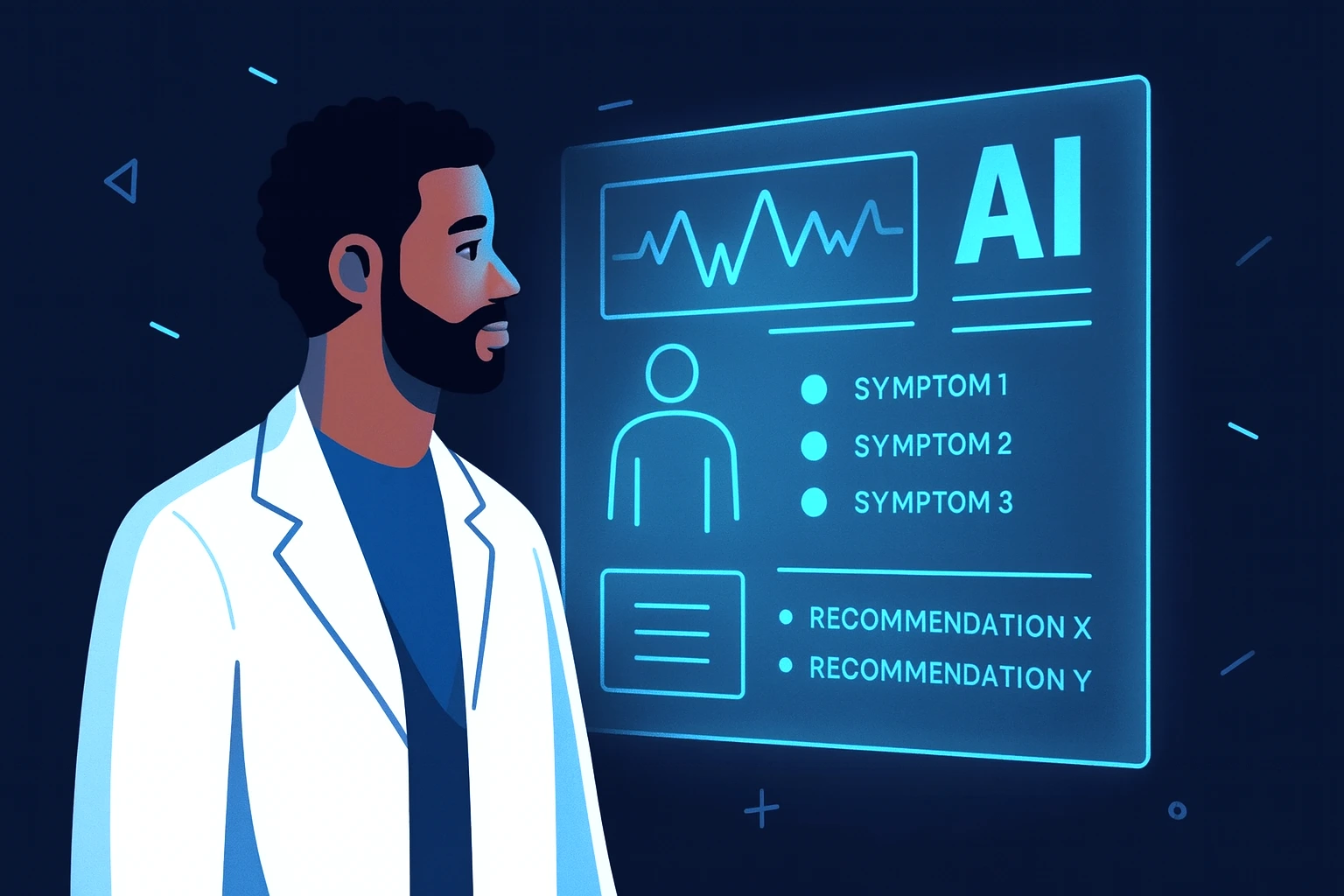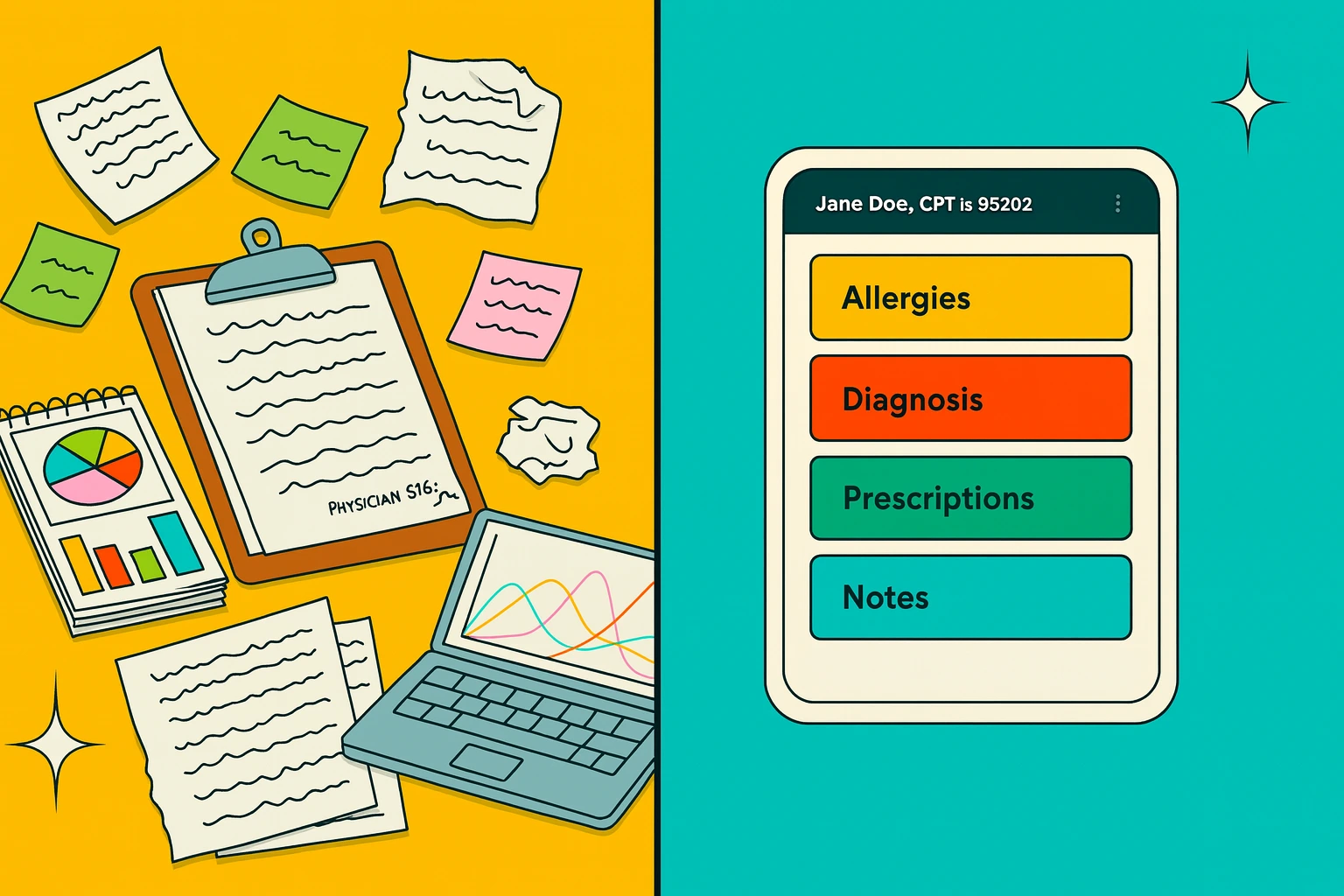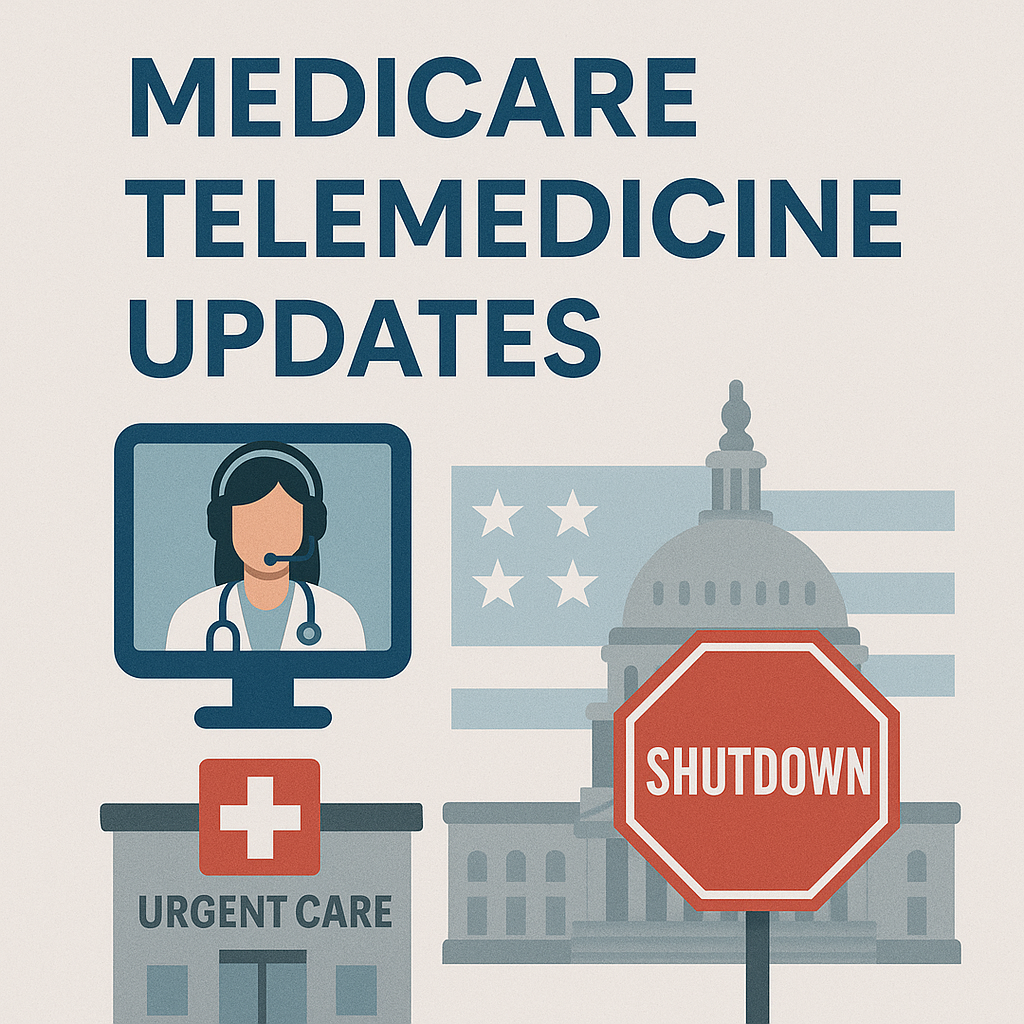

The Role of Artificial Intelligence in Revolutionizing Urgent Care
Discover how AI enhances urgent care with faster triage, smarter diagnostics, and streamlined documentation.

In the world of urgent care, speed must be matched with competent and thorough care. Artificial Intelligence is stepping up as a game-changer for medical practices; enabling healthcare delivery to be more precise, streamlined, accessible, and patient-centered.
Here’s how AI is transforming urgent care facilities and improving outcomes.
Urgent Care practices demand efficiency, accuracy, and timely intervention in order to provide the best care for the patients they serve. Artificial Intelligence (AI) is emerging as a transformative force, reshaping how urgent care facilities operate, improve patient outcomes, and enhance overall healthcare delivery.
What is AI in Healthcare?
AI in healthcare refers to the use of algorithms and machine learning models to analyze complex medical data, assist in decision-making, and automate routine tasks. In urgent care, this technology addresses the industry's unique demands, such as rapid diagnosis, patient triage, and resource allocation.
How AI is Transforming Urgent Care
1. Efficient Triage and Patient Prioritization
Urgent care centers often face the challenge of managing patients with varying levels of severity. AI-driven triage systems can analyze symptoms reported by patients and prioritize those needing immediate attention. For instance:Chatbots and Virtual Assistants: AI tools can collect preliminary data, saving time for healthcare providers.Risk Stratification Models: These predict which patients are at higher risk based on medical history and symptoms.
2. Accelerated Diagnostics
AI algorithms can analyze imaging studies, lab results, and clinical notes faster than traditional methods. Examples include:Medical Imaging: AI systems for diagnostic testing can detect abnormalities in X-rays and CT scans within minutes.Lab Analysis: Automated systems interpret blood work and other tests, ensuring quick and accurate results.
3. Resource Management
AI enhances operational efficiency by predicting patient volumes and managing staffing needs. Predictive models ensure that urgent care facilities are neither overstaffed nor overwhelmed, improving cost-efficiency.
4. Remote Monitoring and Telehealth
AI-powered telehealth platforms allow urgent care providers to remotely monitor patients and offer real-time consultations. This is particularly beneficial for follow-ups or minor illnesses, reducing the need for in-person visits.
5. Decision Support for Providers
AI systems act as a second opinion for clinicians, offering treatment suggestions based on a vast database of medical literature and case histories. This helps ensure evidence-based care.
How UrgentIQ Utilizes AI in Their Innovative Software
UrgentIQ has implemented AI to assist providers with their clinical decision making. AI support enables providers to more quickly chart while also providing guidance on proper coding choices based on the documentation in the record. This not only increases efficiency, but also helps with reducing denied claims. Additionally, AI can help improve compliance and promote higher quality standards.
UrgentIQ also utilizes AI to create discharge instructions. As with clinical decision making, this process helps providers save time on documentation, especially for those common diagnoses like URI, strep pharyngitis, or sinusitis. We are also in the process of building out a fully integrated conversational AI feature that will allow the provider to document a visit without touching a mouse. Our focus is on reducing provider’s documentation time, so they have more time to spend with the patient.
Future of AI in Urgent Care
The use of AI in urgent care is still in its early stages but is poised for exponential growth. Innovations in natural language processing (NLP), predictive analytics, and wearable technology will further expand AI’s role in healthcare. In the coming years, AI could enable fully automated triage systems, real-time language translation for diverse populations, and personalized treatment recommendations.
Conclusion
AI is not just a tool but a strategic partner in transforming urgent care delivery. From enhancing diagnostic accuracy to streamlining operations, AI addresses critical pain points in urgent care, ultimately leading to better patient outcomes and increased efficiency.
As AI technology continues to evolve, it holds the potential to redefine urgent care, making it more accessible, efficient, and patient-centered. By embracing AI, urgent care centers can stay at the forefront of healthcare innovation and deliver superior care when it matters most.
Working with vendors that utilize AI technology is the most cost-effective way to implement AI in your urgent care practice.
If you would like to learn more ways to utilize AI tools in your urgent care or how to improve the functionality of your EMR contact sales@urgentiq.com
More blog posts to read
Prefer to send an email? Send us your request at sales@urgentiq.com, and we'll coordinate with you directly.
We're thrilled that you're interested in joining us. Please fill out the form below to get started on your journey with UrgentIQ.




